Meet the Contributors
This collection of stories from 30 of Sydney’s Indigenous people will bring all Australians closer to the truth about the impact that colonisation has had on our First Nations people and how that impact continues today.
List of Contributors
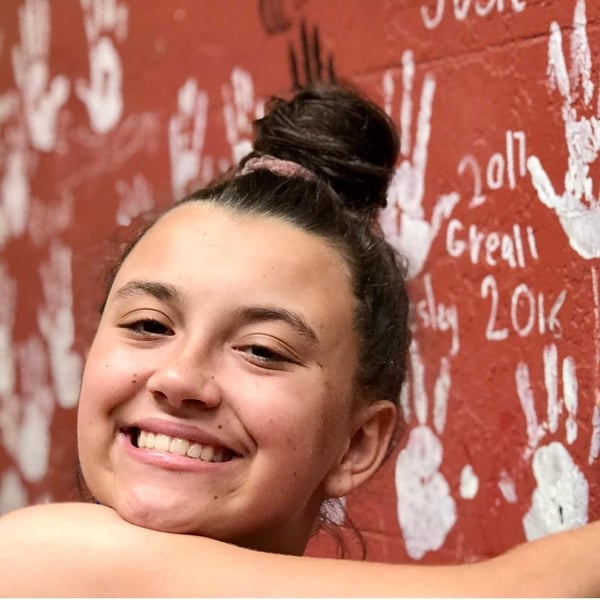
"I think all children should learn this history so that non-Indigenous people know that we had to put up with a lot: kids stolen from families, slavery, not being allowed to speak our language, smallpox. People should also learn about all the great things Aboriginal people did. We made spears, we built boats, we invented the boomerang."
Alyrah Harriott
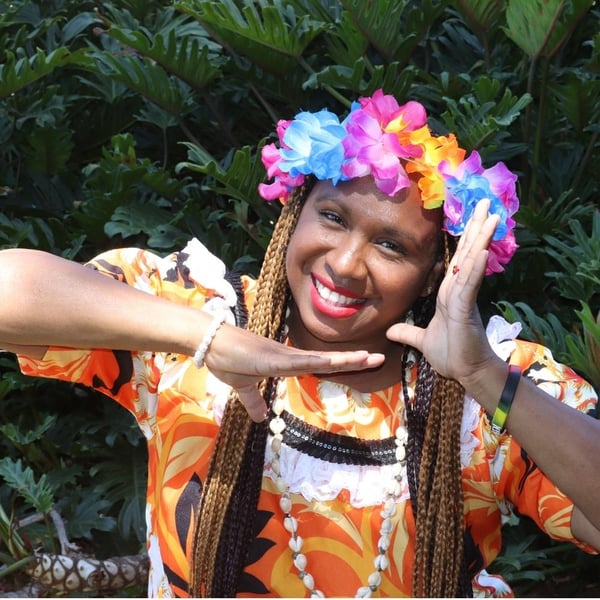
"We’re put into this box by the government; we have to go to school to learn this broad-spectrum curriculum where Indigenous culture is always last. When I was in school there was no culture taught. Now there is more, and I have faith in the government that through the school curriculum they will let our culture be known."
Andrea Adidi
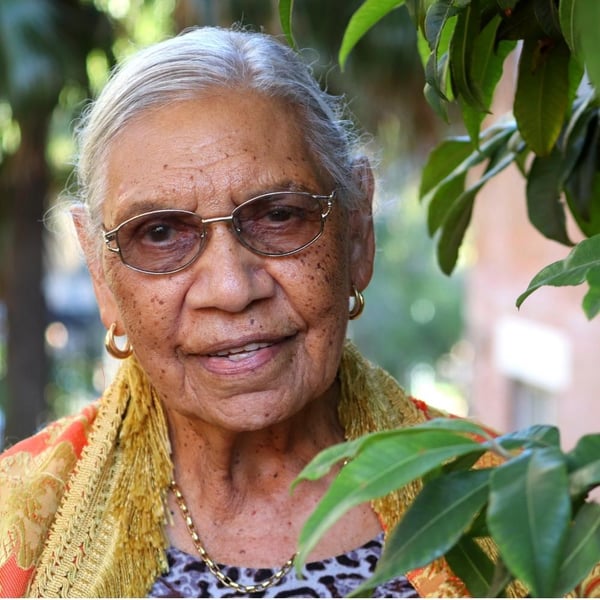
"This place, it’s community to me. I was on The Block since I was sixteen years old, and I’ve seen all the changes. I’ve lived through the past, when we marched for our rights and did what we had to do. And now our young people have got to do this. They’ve come back to The Block and we’ll start all over again. They’re educated, and so they’ll fight the fight and do what we need to do. "
Aunty Beryl
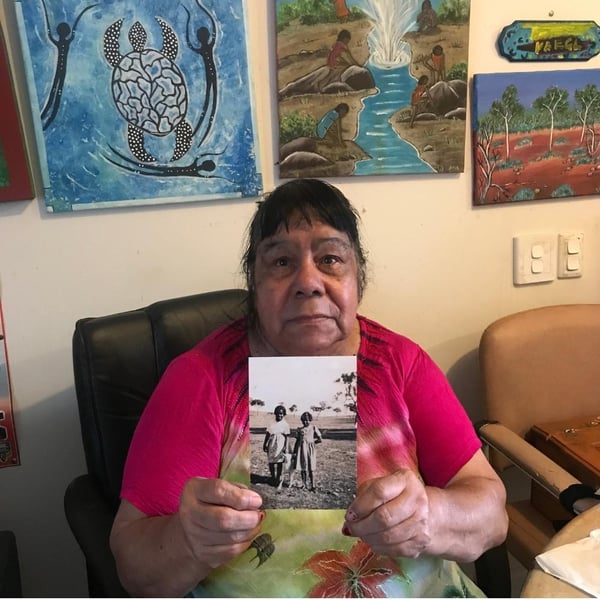
"I was taken when I was two-and-a-half. Me and my sister were taken to Bomaderry Children's home. But when I was 9 we were taken to Cootamundra Domestic Training Home for Aboriginal Girls and introduced to my other sisters Amy, Adelaide and Rita. They were older than me. That’s when I learned that there were nine children in our family. We were all taken on that same day when I was two-and-a-half. Three girls were taken to Cootamundra, three sisters to Bomaderry and the three brothers went up to Kinchela Boys Home. At the time, my father was in the army. While he was fighting for his country, they came and stole his kids."
Aunty Val
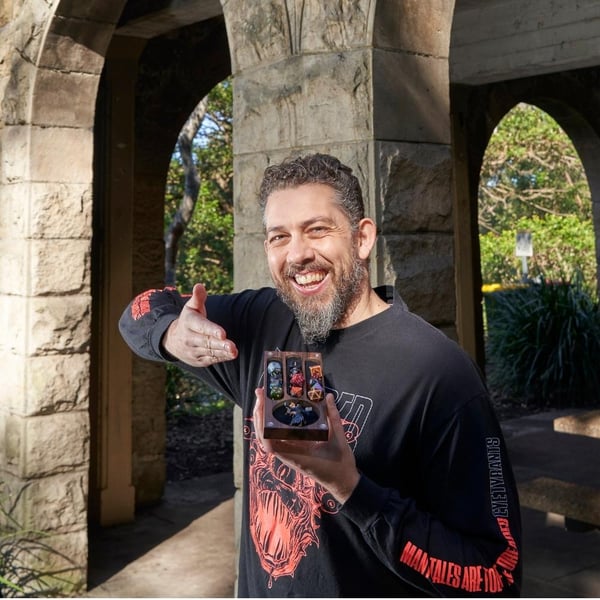
"I think the most important thing is, if you are interested in technology, if you’re interested in gaming, if you’re interested in art, if you’re interested in science, if you’re interested in maths and engineering, absolutely, follow that dream. Don’t let anyone tell you you can’t do that because that’s absolute rubbish. There are so many amazing Blackfullas out there who are working in that STEM space. I feel very privileged to know so many of them."
Ben Armstrong
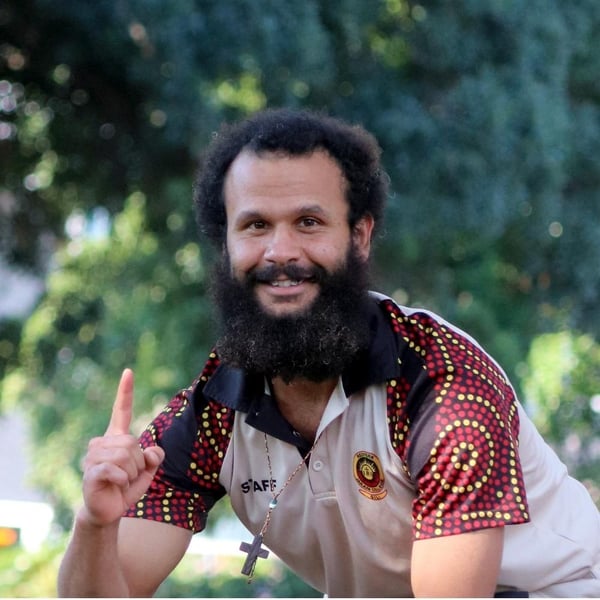
"Some people might think that Christianity has had some negative impact on Aboriginal people but I really believe it and value it – I know it’s been a positive influence in the lives of other Aboriginal people who I know, and definitely Torres Straight Island people. It has been the most positive influence in my life."
Beni Israel Landy Ariel
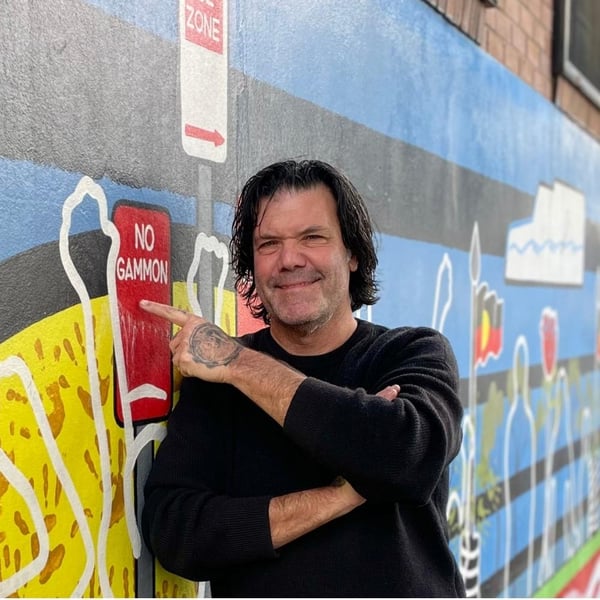
"Almost one in three people in jail are Aboriginal. It’s because most Blackfellas retaliate in the way they feel most comfortable and that’s to punch someone in the face. And so, when kids would call my dad names I’d just smack ’em and I’d end up in the principal’s office. That is the beginning of a cycle that ends up with one in three people in jail being Aboriginal."
Blak Douglas
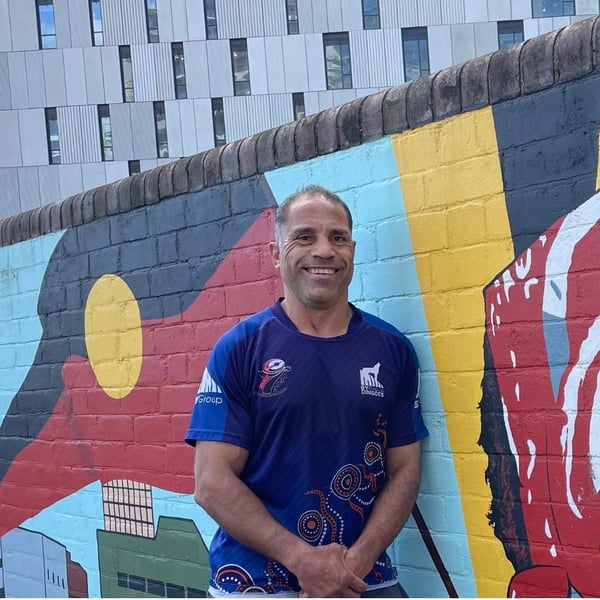
"I see Indigenous people as being like turtles. The turtle has a shell, and it’s always protecting. The head only comes out when it knows people, when it knows family, when it knows mob. If it doesn’t know him, he’ll hide in the shell. We have got to break through that. I don’t care who’s around us, we’ve got to break that shell and put our head out all the time and be proud of who we are."
Brendan Williams
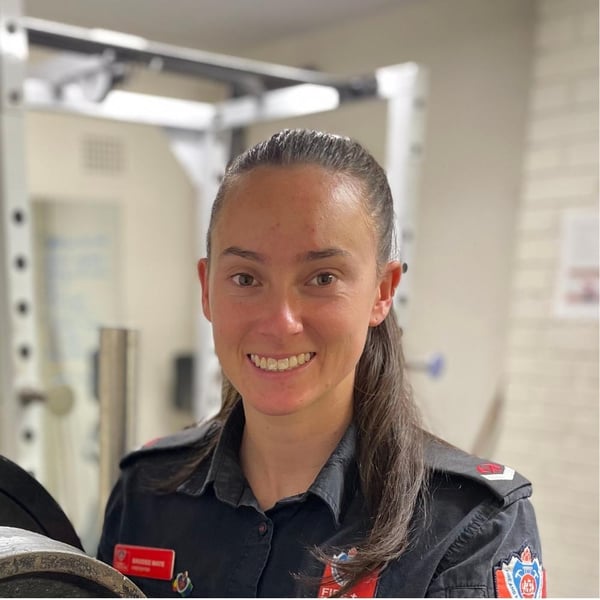
"Not many girls break the minute barrier in the 400-metre hurdles but this year I achieved my personal best placing second in Australia in the 2022 Australian Open Championships. I’m so thankful everyone is supportive of my athletics at Fire & Rescue. What I enjoy most is feeling fit, fast and healthy."
Brodee Mate
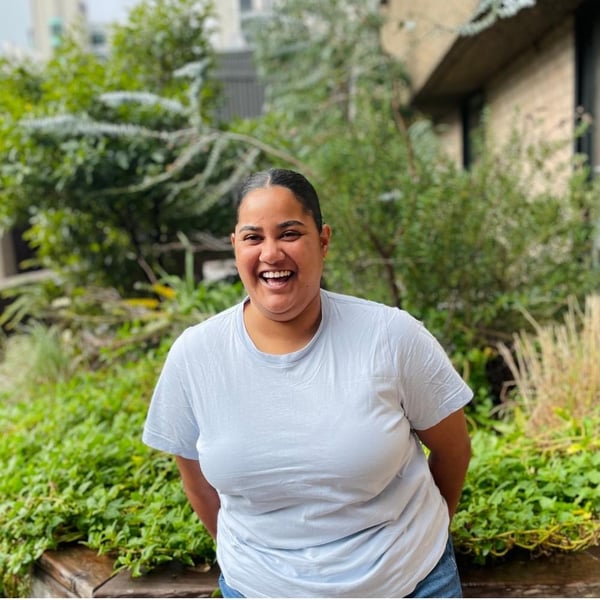
"I pay homage to these strong women in my family. It’s not just the last two or three generations. It’s that relationship and connection for hundreds of thousands of years. That’s what is instilled in us. That’s where it stems from. That’s spirit. Carried by spirit, spirit of connection, spirit of belonging. When you have a good grip on that kind of stuff, you’re unstoppable. "
Ebony Carberry
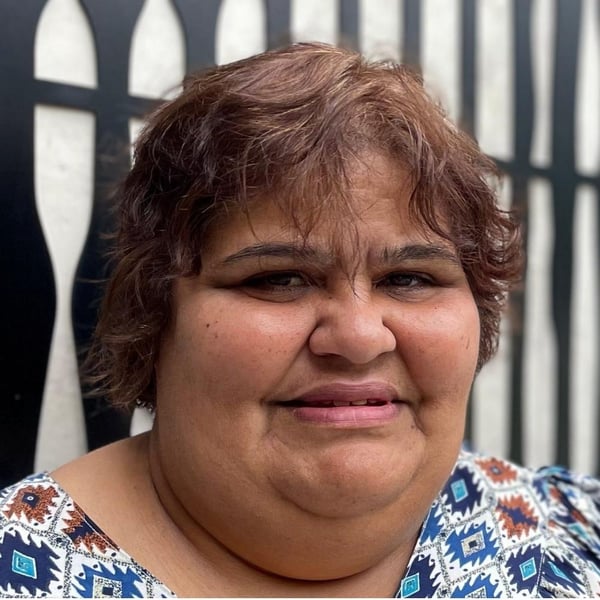
"My story is not a beautiful story. But it’s so important to share these stories. Kids may know about the Stolen Generations, but they don’t know the details. And I think to tell them a story like that, where your mother lost a child, and then three days later, two more children got taken away, is important."
Gayle Caldwell
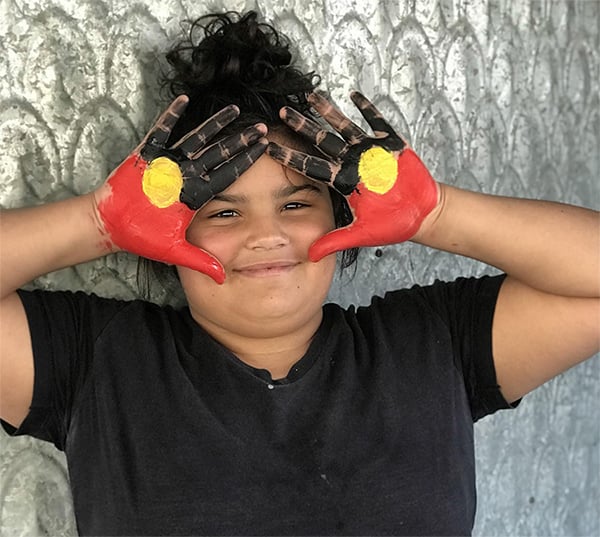
"If you don’t know much about Aboriginal culture, just come and ask us. And please don’t call us names."
Jezarah
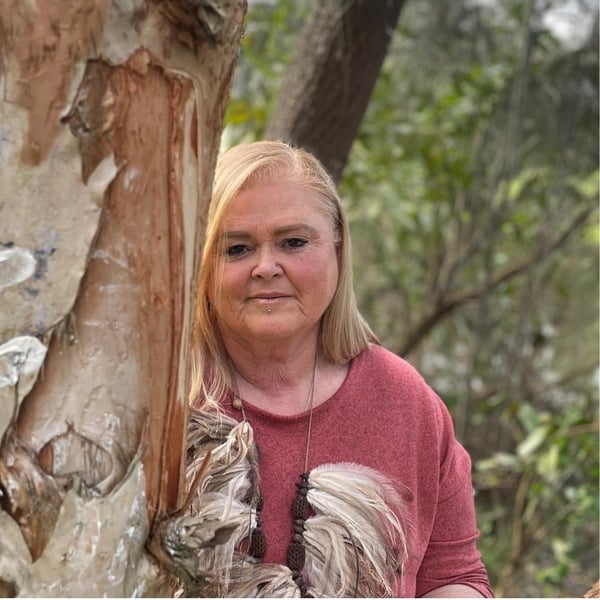
"We live in a world where white documentation is the only form of validity. That just wasn’t our way. So it's been a really big effort over decades and decades to be asking our elders and our aunties and uncles and other mobs, ‘what do you remember?’."
Julie Clarke Jones
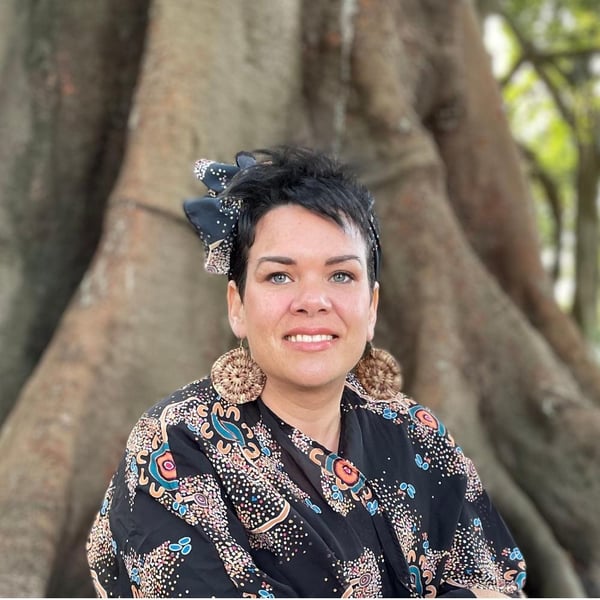
"Cultural beliefs and practices encourage us to believe in something bigger than ourselves. We are designed for a purpose; when we realise that each and every one of us is important and our voices matter, we get to play our part in that bigger purpose."
Lavinia Williams
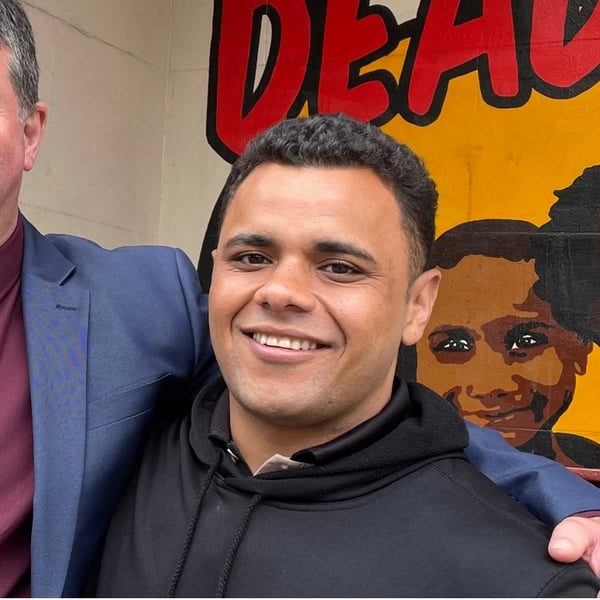
"I think the one thing that has survived the most, through the last 220 years, is a sense of family. It’s always been important. You have a child and it belongs to the mob. Most of the time we don’t even realise how we’re linked to everyone else in our community, whether it be blood ties or just being from the same nation. There is still that sense of belonging between Indigenous people. You’re black, I’m black, we are black."
Les Cain
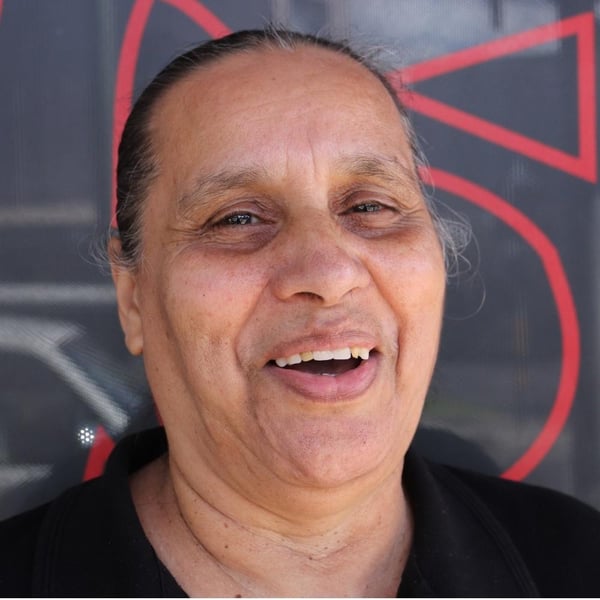
"I didn’t really know what a family was supposed to be like. I used to think, this is not right, it was supposed to be like The Brady Bunch or The Waltons, but my family was nothing like that. And then I met the Kinchela Boys Home mob and understood that we all had such similar stories. Meeting all the other Uncles and their children who were in the Stolen Generations, I didn’t feel so alone with my story."
Lesley Franks
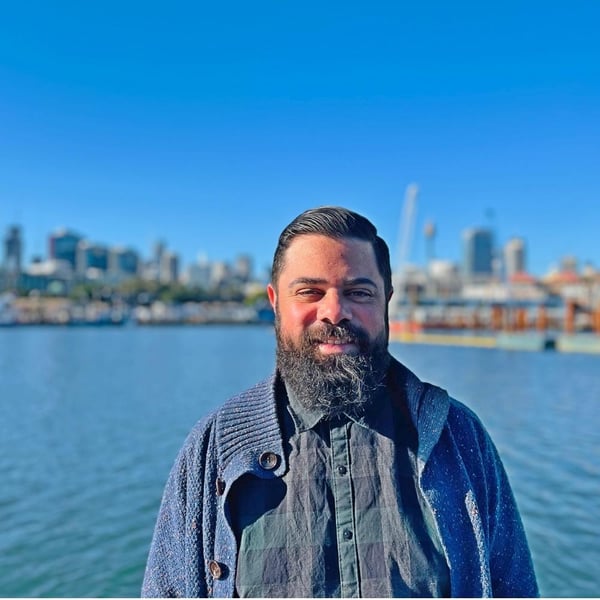
"People say, ‘Oh, get over it. It happened 250 years ago,’ … actually, the trauma continues. And also some of the practices from back then still happen today, just in a modern context. So, instead of seeking justice, the Indigenous side is expected to lift its game. Well, the non-Indigenous side has to lift its game as well."
Liam Ridgeway
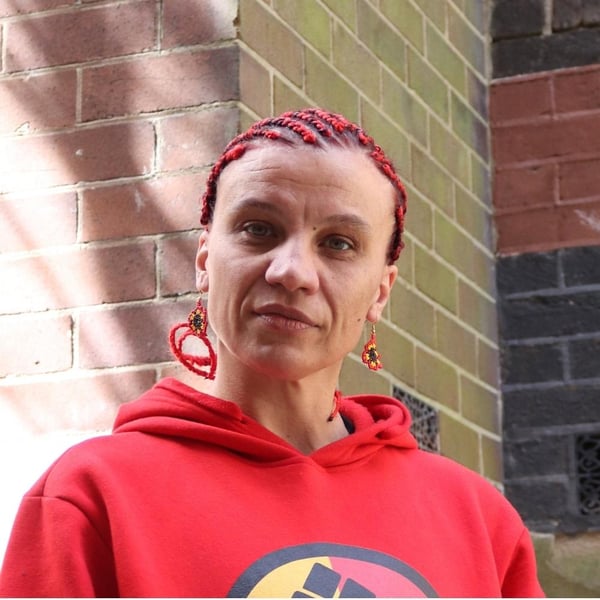
"I say to my boys, ‘How are you black? You’re human. You’re spiritually connected to a land that has the oldest continuous living culture known to mankind. You are so much more than black. You are all the colours, you are all the numbers, you are all the stars. You are everything. You are not just the black boy."
Lizzy Jarrett
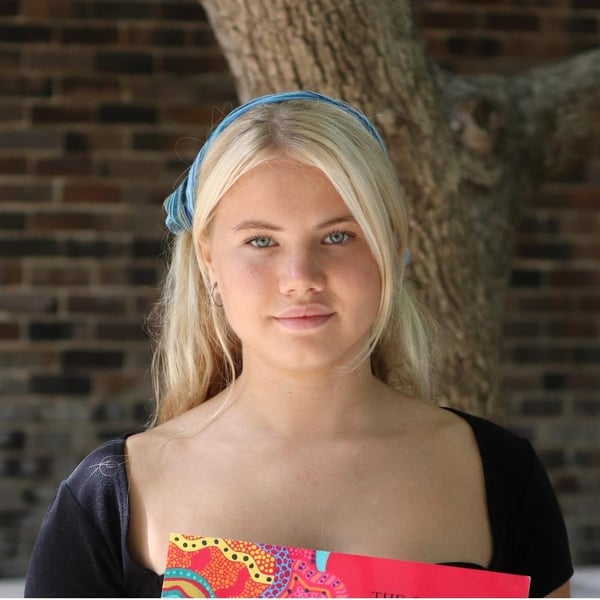
"It is so important that we listen to the Uluru Statement from the Heart and really push for some common ground and universal recognition of past injustices, so we can move forward together as a country. I think part of moving forward is giving some of that power back to Indigenous people."
Lua Pellegrini
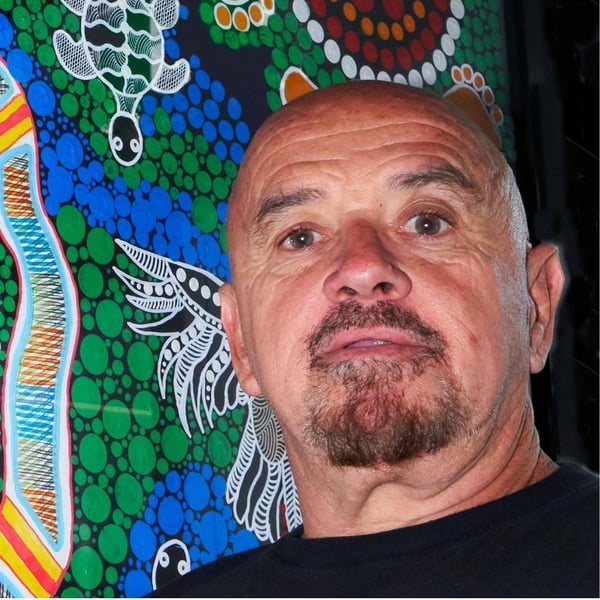
"My family lived on Angledool Mission, north of Walgett. They were happy there because it was their tribal place. But then they were moved almost two hundred km away to Brewarrina Mission: trucks came in the night and took them away. They weren’t the only ones – lots of Aboriginal people from missions all over New South Wales were moved to Brewarrina Mission when it opened in 1886. They were always looking over their shoulders - one day a kid would be at school, the next day they would be gone. So they were constantly on the run, constantly moving, constantly looking over their shoulders. And not just my family – every Aboriginal family right across Australia. "
Mark Trewhella
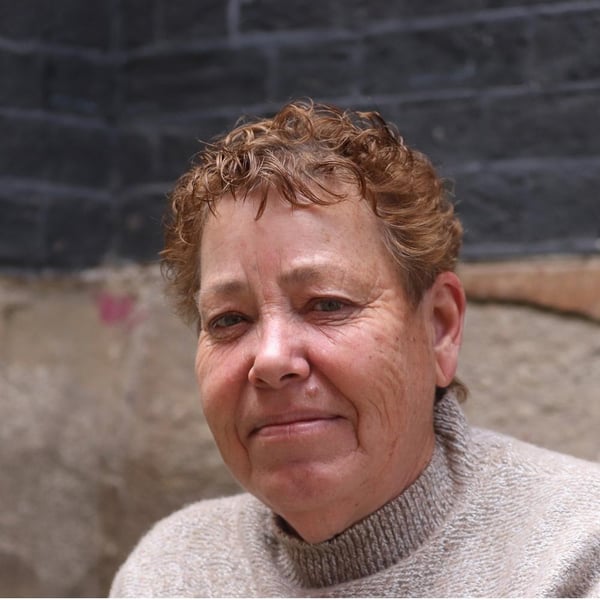
"I’ve lived in Redfern since the 1960s. Over the years, Redfern has changed; women, in particular. They’re a lot stronger than they used to be. And there’s a big push by women to get educated and to make sure their kids get educated. "
Michelle Brough
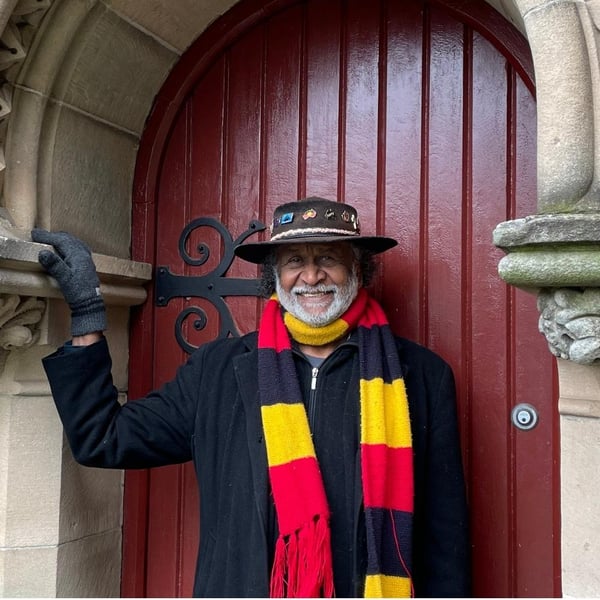
"Very often, the solution enforced on our troubled children is to send them to boarding schools. But when we take kids away from their families, we’re not growing parents. You must remember that many of the parents were taken too. And so we have a generation of people – now parents – who have had no parental development. Nobody has shown them how to be a good parent. I say to the government, ‘You took them, now you fix them."
Pastor Ray Minneacon
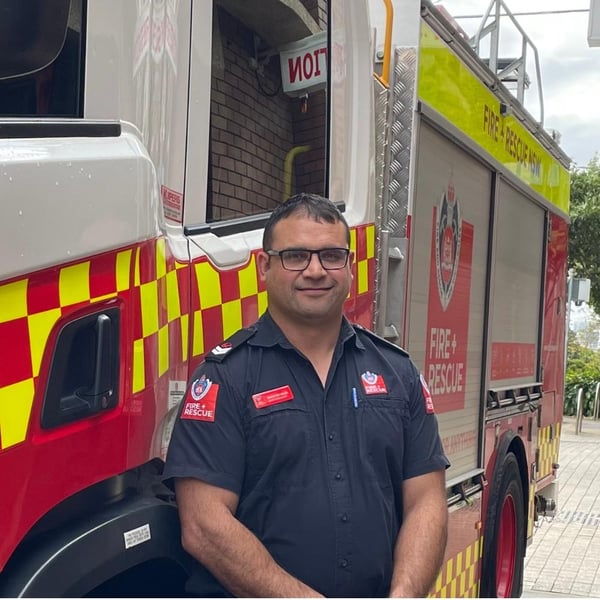
"Shame seems to be ingrained in Aboriginal people’s DNA. It’s something you carry from birth. Sometimes, if I see Blackfellas doing something wrong, I sort of feel that it comes back to me personally, but I shouldn’t. It’s the individual. It’s a weird thing. I try to understand it. I don’t want my daughters to feel it. Confidence is the opposite to shame and the next generation has that confidence, whereas a person of my generation often doesn’t."
Quinton Silva
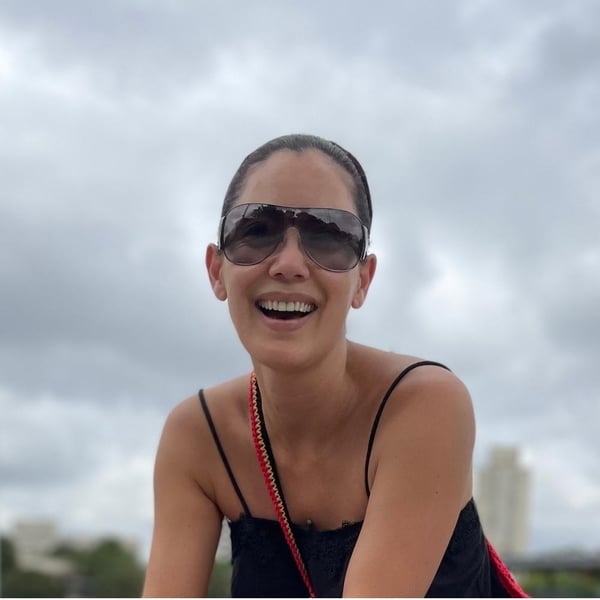
"Culture wasn’t really talked about when I was young. Now I look at other people who have grown up on country, surrounded by their culture, and I am in awe of them. I don’t feel confident to speak about my culture, because I feel like it didn’t come from my immediate family like that. I am a proud Wiradjuri woman. But it’s completely different for me. It’s lost. I’m not confident to share my cultural experiences."
Raylene Carroll
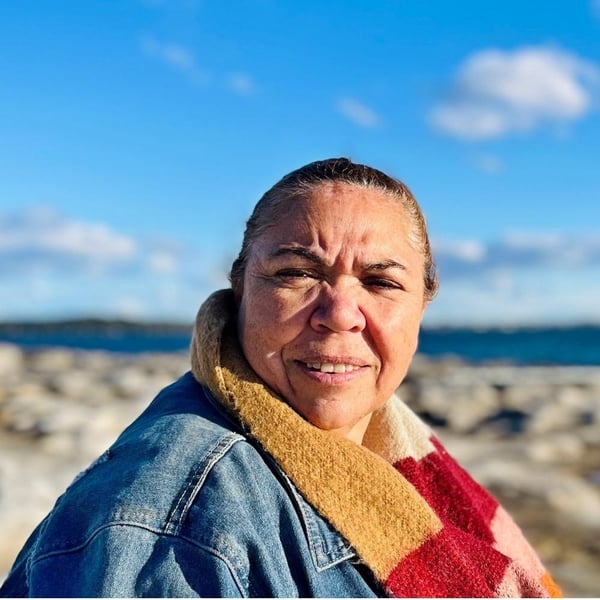
"Teachers and principals need to be educated about Aboriginal culture, Aboriginal connection and kinship. Many Koori kids have lots of Uncles and Aunties. They may call their Aunties ‘mum’. Those Aunties will also fill the role of mother. My kids call my sister ‘mum’ and they know she is there for them. Sometimes, if they need anything, she’ll be there before me or they’ll talk to her before me. And that doesn’t bother me because that’s her role as much as mine. And so this is why you might see Aunties coming to the school instead of the mothers. The role of parents is shared."
Selina Brown
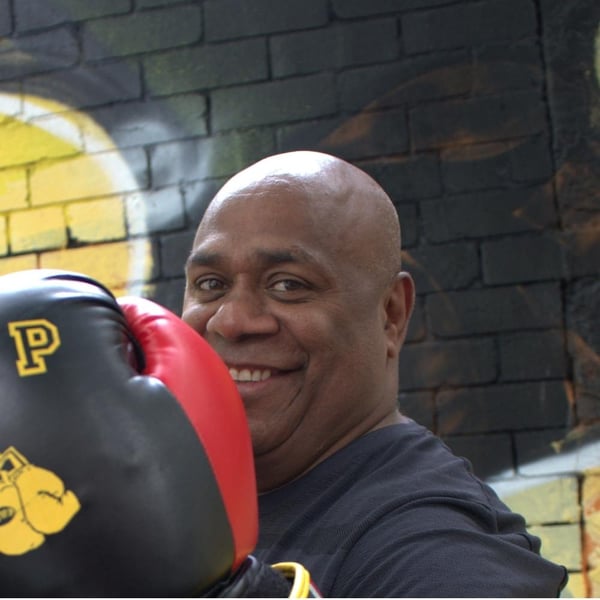
"Just imagine that every thousand years, our people had to overcome something dramatic, something big. It could have been an earthquake, a meteor, illness that could have nearly wiped our people out. Our people had to rebuild. And now it’s our turn. We have to be responsible for keeping this language, keeping all these practices. Let’s rebuild them again, now, for the next thousand years."
Shane Philips
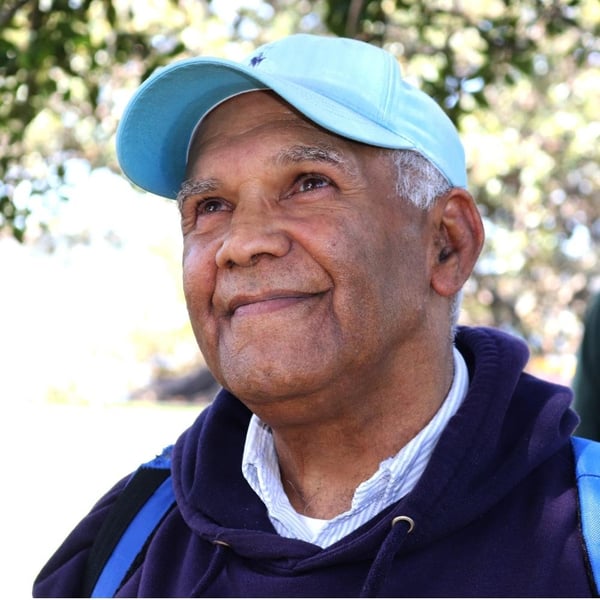
"The education system sidelined me because there is nothing of substance in school for Koori kids. It’s colonialism, it’s capitalism. The education system has lied to everyone in this country. The real truths are not being taught. Teachers, get real! You are in a position of power. Have the courage to stand up and ask for cultural awareness training. Do the right thing and tell the truth. "
Uncle Jimmy Smith
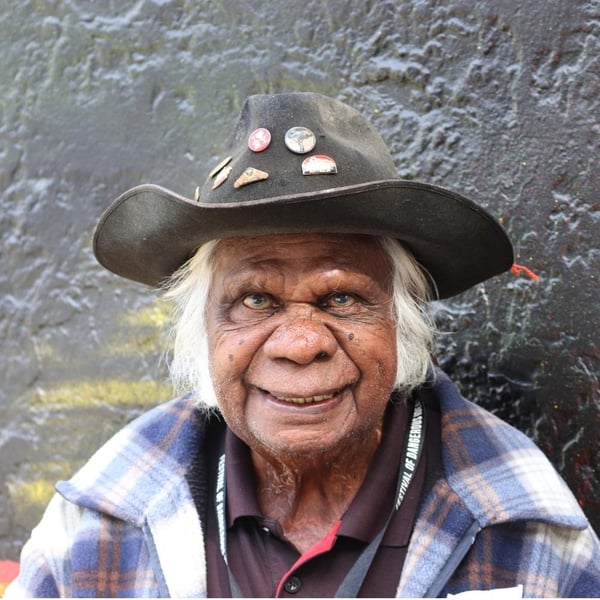
"One morning by the campfire, I read an ad for Alcoholics Anonymous. ‘What’s that?’ I said, and my mate told me, ‘That’s where you go to get help to get off the drink.’ I said, ‘I’m gonna go there.’ And so I came to Redfern looking for AA. It was 1973."
Uncle Max Eulo
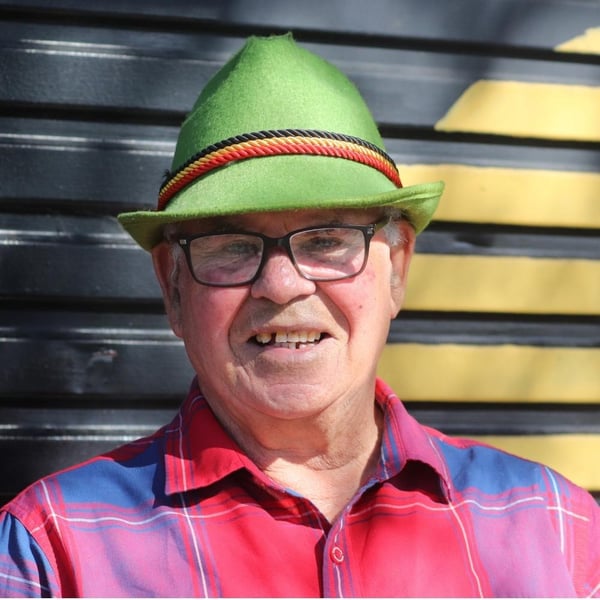
"This is our argument with the government today. They said they were sorry in 2008 but in 2017 there have been thousands of children taken away from their families. And still today, we meet with them and talk to them about this and still today they remove the children. They say they want to heal communities but you can’t do that while you’re taking children away from families."
Uncle Widdy Welsh
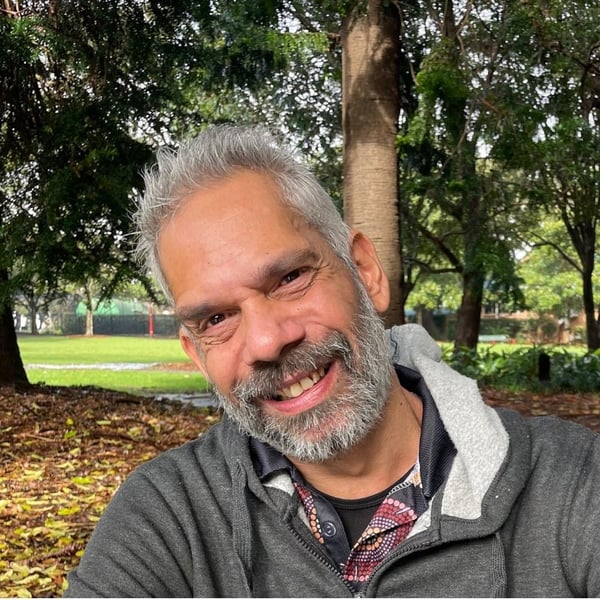
"The first time I met my birth mum eye to eye, there were tears on both sides. She was dying in Royal Prince Alfred hospital, so I knew I only had limited time with her. I only saw her twice. When my Mum and Dad met her, it was also a very special moment. There were more tears. She thanked them for bringing me up and they thanked her for the privilege."
Warwick Bell
Join our mailing list
Fill out the form to the Yellamundie mailing list.

